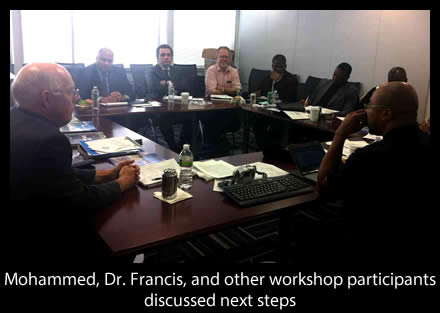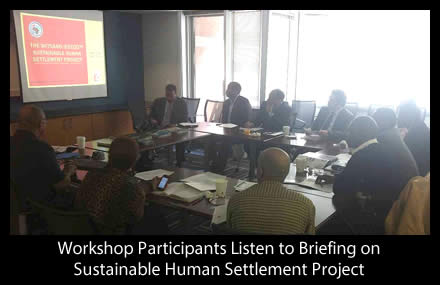The GW Environmental and Energy Management Program participated in a workshop hosted by the Global Environment Facility (GEF) in April 2012 to review the integrated Energy Environment Empowerment-Cost Optimization (iEEECOTM) methodology used to plan the Witsand Sustainable Human Settlement project in Cape Town, Republic of South Africa. Dr. Royce Francis, Assistant Professor in the EEM Program, and Mohammed Qaradaghi, Ph.D. student, participated in the workshop and discussed how cutting-edge research and tools in sustainability and energy management could be utilized in yielding more efficient outcomes.
The iEEECO methodology sets forth a process for planning, designing and building sustainable communities for low-income and indigent populations that are energy efficient, environmentally responsive, and affordable, while simultaneously promoting the efficient and adequate delivery of basic services, social and economic development, sustainable job creation, capacity building and poverty alleviation. The Witsand Sustainable Human Settlement project was used to demonstrate ways through which appropriate technology and modern ideas can be incorporated to build viable and sustainable communities and to review the special purpose funding vehicles targeting international scale-up and replication.

The Witsand project, which recently won the Excellence in Engineering Award by the American Academy of Environmental Engineers, was a 20 year-old, shanty town of over 2,000 shacks that had no access to basic services. PEER Africa was assigned its transformation into a sustainable human settlement that houses over 2,600 families in passive-solar designed homes, equipped with energy efficient and water conserving appliances and fixtures, in addition to upgrading the public transport areas and installing energy efficient and non-light polluting systems.


